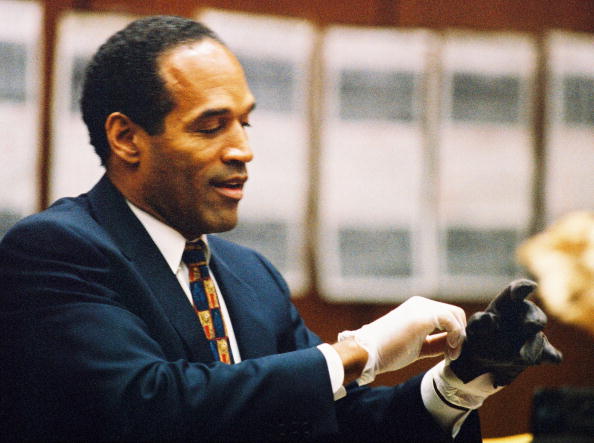No matter how hard law enforcement labored to keep well-wishing fans as far as possible from New Hope Baptist Church where Whitney Elizabeth Houston’s “home going” celebration took place, the citizens of Newark would not be denied their chance to say goodbye to one of their own.
What is truly unique about this solemn day of Whitney’s “home going” (And I say “Whitney” informally because the locals saw her as a regular girl from Newark) is the unflinching love her fans held for her. As a New Yorker, I am not familiar with Newark, even though it is a twenty-minute train ride away. But the locals were more than happy to give me a quick primer on their Newark, a city that they take so much pride in.
The city that produced Whitney, the “Queen of Pop.”
As it was explained to me, Newark is a working-class town where people have a tough mettle about themselves. It has a less-than-glamorous reputation on the east coast and its national profile is no better. Perhaps one of its better-known introductions to the nation was through the 1995 film “New Jersey Drive” that starred the late Heavy D, who played the head of a car-jacking ring. The movie certainly didn’t help rid Newark of its reputation as a rough and tumble city. To be honest, the film was not too far off base from reality. It was indeed just one of the many predominately-black cities in the U.S. that suffered from urban blight and was managed corrupt politicians.
(Think Sharp James, who was sentenced to federal time over corruption charges)
Therefore, it is a city that understandably holds on to its brightest jewels with a life-or-death desperation. For many of the people with whom I spoke today, Whitney was, no scratch that, is that brightest jewel. Not only did Whitney “make it out” She made it big. Or, as the locals told me today, “She represented the Brick City, baby.”
“I never had he honor of meeting Whitney,” one person standing outside of the six-block-police corridor told me. “But I feel like I knew her in my head. I love her through her music.”
Surprisingly, there were not many people forming huge and uncontrollable crowds as was expected. In fact, there seemed to be as many police officers as there were fans. And even the police were very friendly and sympathetic to well-wishers clamoring to get closer to the church six blocks away from the barricade.
However, neither the police barricades nor the lack of access stopped people from celebrating their idol. High up in an a apartment building, not too far from New Hope Baptist Church where the funeral was taking place, someone played Whitney’s greatest hits from a loud sound system. Fans on the ground level grooved and boogied the beats of “You give good love” and “ I wanna dance with somebody” as they looked approvingly towards the apartment from where the music was playing.
Street hustlers were stationed strategically on corners where passers-by frequented, ready to make a profit off of Whitney’s death with “I love you Whitney” buttons and t-shirts with the star’s image printed on them. It was a bright, sunny day in Newark. Perfect for a mid-February street celebration.
For many in Newark, Houston’s death had them reflecting on their hometown. When I boarded a bus heading back to Newark’s Penn Station for my return to New York, I started up a conversation with a woman who spoke about how poorly she felt the city was working for the citizens. She did not have very positive words about Cory Booker, Newark’s Oxford University-trained mayor who many feel can one day follow President Barack Obama’s path to the White House.
“He ain’t s**t!,” the woman said of Booker. Don’t get me started on that mothafu**a. Newark is f**ked up.”
But another woman listening to the conversation nearby chimed in saying, “Excuse me. You wanna know why Newark is f**ked up,” she asked? “Because the people in Newark is f**ked up. If the people of Newark would take care of Newark, it would be a better place. Newark is not bad. If you apply yourself, you can get anything you want here that you can’t get anywhere else. You can’t blame it on the politicians. It’s on us to make Newark better.”
The woman who first scolded Booker and Newark sat sheepishly, shaking her head in agreement. It was a defining exchange that summarizes Newark. It has a rough reputation. A reputation it may not fully deserve. But in the end, when it is at its best, it can produce great things and great people.
And Whitney Houston, that “sweet,” “down-to-earth,” “Jersey girl” that many Jersey folks see as their own, is one of them. She debunked the stereotypes people associated with Newark. She was neither “ghetto” nor “unsophisticated.” At her best, she was the epitome of class and intellectual substance. She was an example of the best that Newark could produce when it was at its best.
And, as far as any of her fans that I spoke to was concerned, she was the best that the Brick City ever produced.
So nothing was going to keep them from at least trying to say good-bye. They respect that the family wants their privacy and need peaceful and pandemonium-free closure. But her fans all said that it was that same pandemonium for Whitney’s voice that made her an international star from whom the world is weeping.
Whitney’s fans love her and they need to heal too was the feeling I got from the fans standing outside of the police barricades today. Nothing was going to keep them from grieving for one of their own. Her real family needed their privacy indeed. That they understood. But what the people standing outside of the corridor were expressing throughout today was that they felt part of Whitney’s family, too.
So, like family, they came out to say their final good-byes. And no barricade was going to stop them from doing that.
















